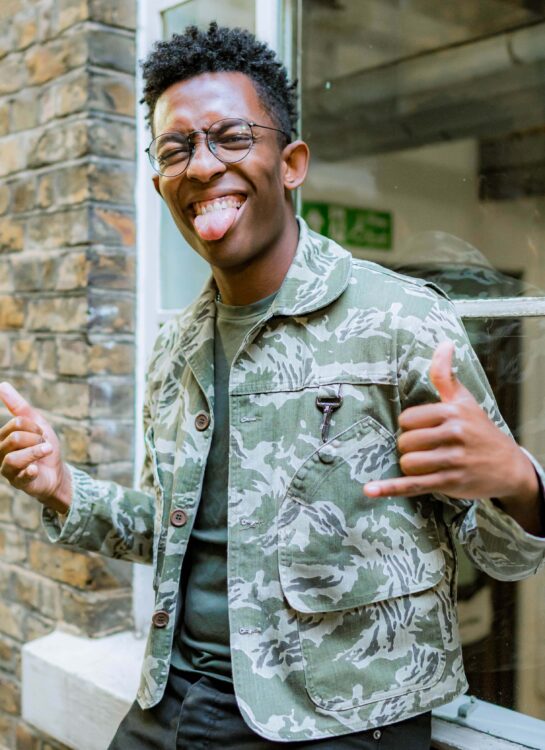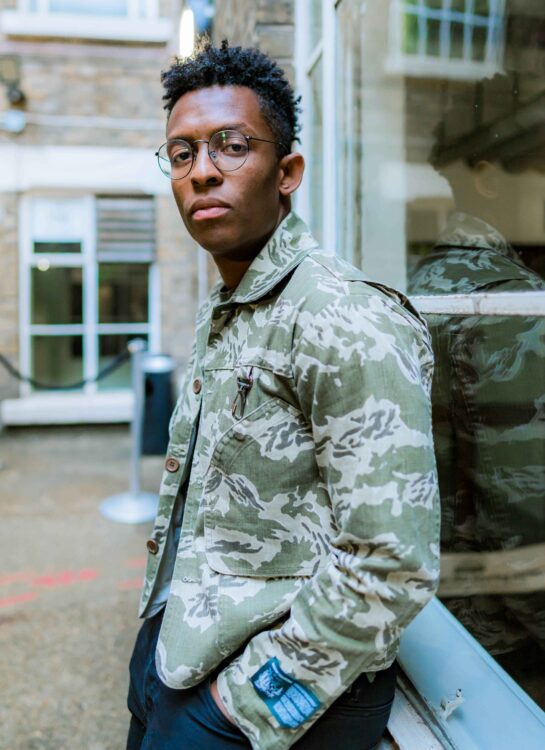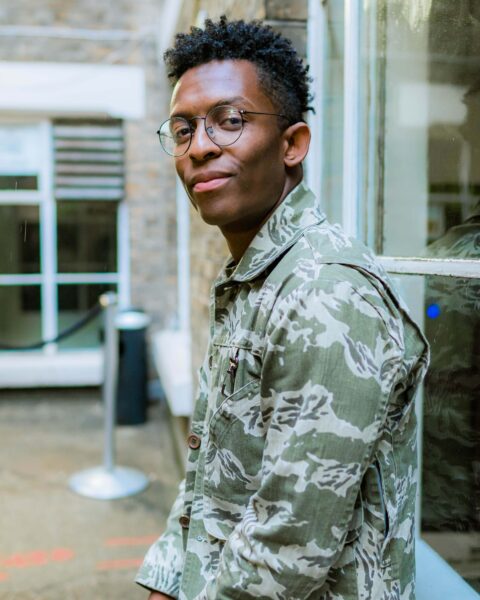- Words Notion Staff
The New Jersey native is fusing country with hip-hop, gospel and R&B. Here, he talks being a cultural trailblazer, learning to write with introspection and where he hopes the scene is 20 years from now.
BRELAND isn’t here to play by Nashville’s rulebook. The 29-year-old New Jersey native grew up on gospel, R&B and hip-hop before finding himself drawn to country, however he dedicated to flip the genre on its head. His viral breakout anthem ‘My Truck’ didn’t just land him a platinum plaque, it announced a new lane altogether: “Cross country,” his own name for a sound that threads gospel harmonies, rap cadences and country storytelling into something genre-proof.
Since then, BRELAND’s has become country’s favourite disruptor. He’s worked with Keith Urban, Nile Rodgers and Thomas Rhett, hosted his own Apple Music radio show, and dropped a debut album, Cross Country, that doubled as both autobiography and manifesto.
Last year he dropped his EP, Project 2024, which took things even further – part diary, part cultural statement, inspired by a trip to Selma, Alabama, where his great-grandmother once lived. The result? A record that swerves between Afrobeats, soul, and straight-up country, with the kind of crossover instincts only BRELAND could pull off.
Here, he talks being a cultural trailblazer, learning to write with introspection and where he hopes the scene is 20 years from now


You coined the term “Cross country” to describe your sound: a fusion of country, hip-hop, gospel and R&B. When did you first realise that genre wasn’t a limitation but a tool you could bend?
From the moment I put out my debut single, it was pretty clear to me that I was reaching an audience a little broader than your traditional country fanbase. And given my musical upbringing, it felt a little disingenuous to just label myself as a country artist. “Cross country” felt like a more accurate description of what I was doing, while still acknowledging its relationship to more traditional country sounds. “Cross country” also gave me the freedom to explore a lot of genre intersections my peers hadn’t explored yet, leading to songs like ‘Motion’, which plays around with country and Afrobeats, or songs like ‘Praise the Lord’, which takes people to the Black church.
Looking back at ‘My Truck’, did you know in your gut it would break through the way it did?
On one hand, it was definitely a social experiment that just hit, but I feel like I’ve always had a pretty good ear for what people might respond to. Even before I put it out, I thought there was a decent chance it could go viral, and when I decided to attach my name to it instead of pitching it elsewhere, I was obviously hopeful that it would reach a broader audience. Seeing where the song has gone, and where it’s taken me, I’m so glad I kept the record for myself.
Country music has often felt like a closed circuit, both sonically and culturally. What was your first experience navigating that space as a Black artist, and how has your relationship with the genre changed since?
When I first came out, I definitely dealt with my fair share of racism. I had people at festivals holding confederate flags, received nasty messages from people who didn’t want me in country, people who told me I didn’t belong here, and worse. On the flipside, I’ve also had a handful of white artists in the space that have been nothing but welcoming. I think my work has influenced a newer generation of both black and white artists, who are more comfortable playing around at the intersection of genres, and I have no regrets about being one of the first to do it, even if that meant facing some additional backlash early on.
Your debut album Cross Country was both personal and political – an origin story and a cultural statement. What do you feel that project unlocked for you creatively or publicly?
I know that you only get to do a debut album once, and Cross Country felt like an opportunity for me to show people some of the sides they may not have gotten from my first couple of singles. I was able to have these inspirational songs like ‘Growing Pains’ and ‘The Extra Mile’, while also telling my story on others. And I was able to play around with some more traditional R&B stylings for the first time through songs like ‘Don’t Look at Me’ and ‘Alone at the Ranch’. I felt like there was really something for everyone on this project, which is what I wanted, because I’ve always been such a big fan of different genres of music. I think it showed me that there really doesn’t have to be any limits to how you create, and I hope that future projects of mine can be even more experimental.
You’ve worked with legends like Keith Urban, Thomas Rhett, and Nile Rodgers, but also newer voices like Mickey Guyton and Ingrid Andress. What does collaboration mean to you when so much of your message is about bridging worlds?
When I first came into the country music scene, there really weren’t as many big collaborations in the genre. It’s something that I brought over with me from hip-hop, where you would have these posse cuts with several artists on one song. I’m seeing now with artists like Big X and Hardy’s Hixtapes that country music is warming to the idea of collaboration more than ever, and I’ve always felt like it was a really important tool for me to be able to explore different sounds in different ways. I love being able to tell stories with other people, performing with them at festivals and on tour.

Do you ever feel torn between being a cultural trailblazer and just wanting to make great music? How do you balance carrying a message with just vibing in the studio?
I think the biggest challenge for me is wanting to make music that’s going to be commercially viable, making hits, while also having so many deeper stories to share in my music. For every ‘Throw it Back’, I need a ‘Cross Country’ and for every ‘My Truck’, I need an ‘Extra Mile’. The people who connect with my music and want to come to shows really appreciate the deeper songs, but you obviously need the big hits to keep the business moving.
Your sound feels so rooted in freedom: musically and spiritually. How much of your gospel upbringing still feeds your instincts today?
Gospel music is a huge part of my upbringing and my sound. I was pretty much exclusively listening to gospel music up until high school, and it’s literally the reason why I’m here – my parents met in the Howard Gospel choir. With an upbringing that runs that deep, you’ll hear elements of gospel peeking out in everything I do, from my harmonies, my run choices, and lyrical and conceptual themes. I’ve also had the great fortune of writing for some great gospel artists like Koryn Hawthorne and Jonathan McReynolds. It’s a part of me that isn’t going anywhere, and I’ll never be too far from it.
You were breaking down country’s boundaries long before it became trendy. How does it feel now watching the genre embrace artists like Shaboozey or Beyoncé? Is it validating or frustrating?
Knowing that I helped pave these roads for artists like Shaboozey and Beyoncé is incredibly validating, and I’m rooting for them both, but it can feel frustrating at times when it seems like I’m not allowed to drive on those very roads. I would have loved to be a part of Cowboy Carter, but I also know that Beyoncé was trying to highlight artists that the country music genre wasn’t as aware of, and there I was with a few hits under my belt already and a number one song at country radio. I’ve got solid relationships with all of the young black artists that Beyoncé featured on the project, and I’ve seen firsthand what that exposure has done for them. But I also know what gifts God has given me, and I have faith that all of these things will work together for good.
There’s been a growing conversation around cultural gatekeeping in country. What, in your opinion, still needs to shift for the genre to truly reflect the people listening to it?
Even in real time, there are debates among some of the biggest artists in the genre about what classifies something as country music, and who is allowed to participate. Beyoncé ruffled a lot of feathers with her project, especially when she won the Grammy for Best Country Album. There are a lot of people in town who feel like that award should’ve gone to someone who has dedicated more time to making country music, or that there were better representations of the genre that should have been recognised. Some of that debate is purely musical, but some of that debate is rooted in a long history of racism and sexism that has gatekept country music for decades. The truth of the matter is, there are so many layers to why the artists making country music and the audience listening aren’t quite as diverse as they could be. The more artists like myself, Kane Brown, Shaboozey, and Beyoncé that we have in this space succeeding, the faster the conversation and audience changes. I hope that 20 years from now, we don’t even have to have this conversation, and that country music simply looks like the world we live in.
Crown Royal, the White House, the Grand Ole Opry… You’ve carved out space in so many unexpected corners. What’s been the most surreal “I can’t believe this is happening” moment so far?
I’ve had a number of pinch-me moments. One of them had to be playing Madison Square Garden with Shania Twain. As a kid from New Jersey, I grew up going to concerts and events there, so seeing my name on the marquee was surreal.
You’ve also written for artists in completely different genres – from YK Osiris to Mozzy. Do you approach writing for others differently than you do for yourself?
Because I got my start writing for other artists across a few different genres, I would say that comes the most naturally to me. It’s a lot harder, trying to write for myself, because there’s an element of introspection that can at times feel crippling. When I’m writing for someone else, I can refer to the types of things that they’ve said in songs prior, and imagine what they might say next, whereas when I’m writing for myself, it can understandably feel a little bit more personal.
What part of your story do you think people misunderstand or overlook the most?
I think when people see that I’m from New Jersey, they have all of these preconceived notions about the authenticity of my country upbringing. But the truth of the matter is, I grew up surrounded by dairy farms and cornfields, and my parents still live in the middle of a big sod farm. Even though I didn’t grow up listening to much country music, both country music and the traditional country lifestyle ring very true to people in my county in New Jersey. I really do come from a small town, and a lot of the things that I talk about in songs like County Line are real. New Jersey is a lot more diverse than what you see in Newark and Camden.
Finally, what does the next chapter of “Cross Country” look like? Is there a new sound or statement you’re ready to explore?
I’ve spent a lot of time over the last few years, since the debut album, trying to figure out what the follow-up should sound like. I’ve played with so many different sounds, and I’ve lived life and had some experiences that have shaped me into a more dynamic person. I hope that whatever my next chapter looks like sonically is reflective of where I am personally, and that the music is able to reach people where they are now. I say all that to say, stay tuned.

